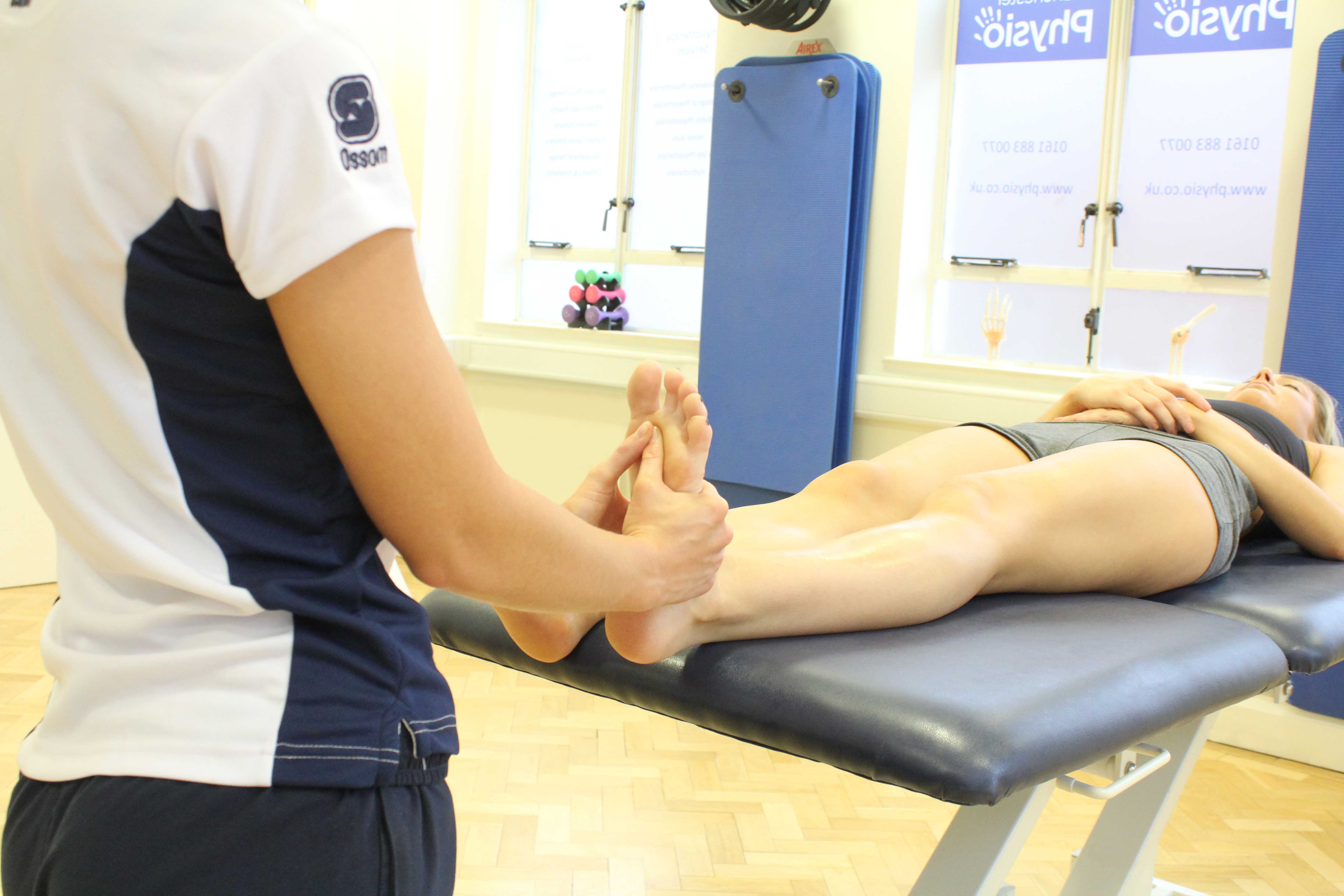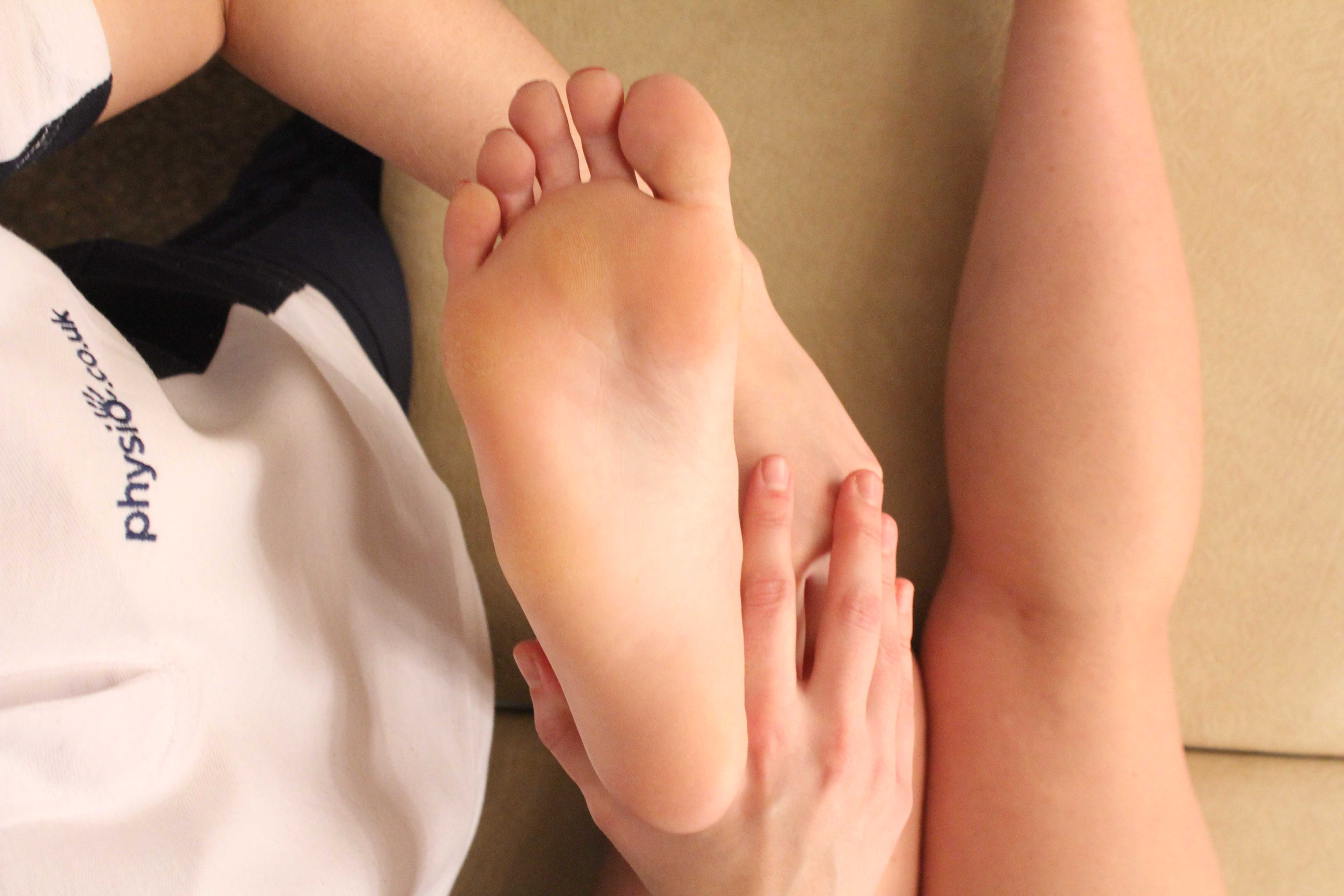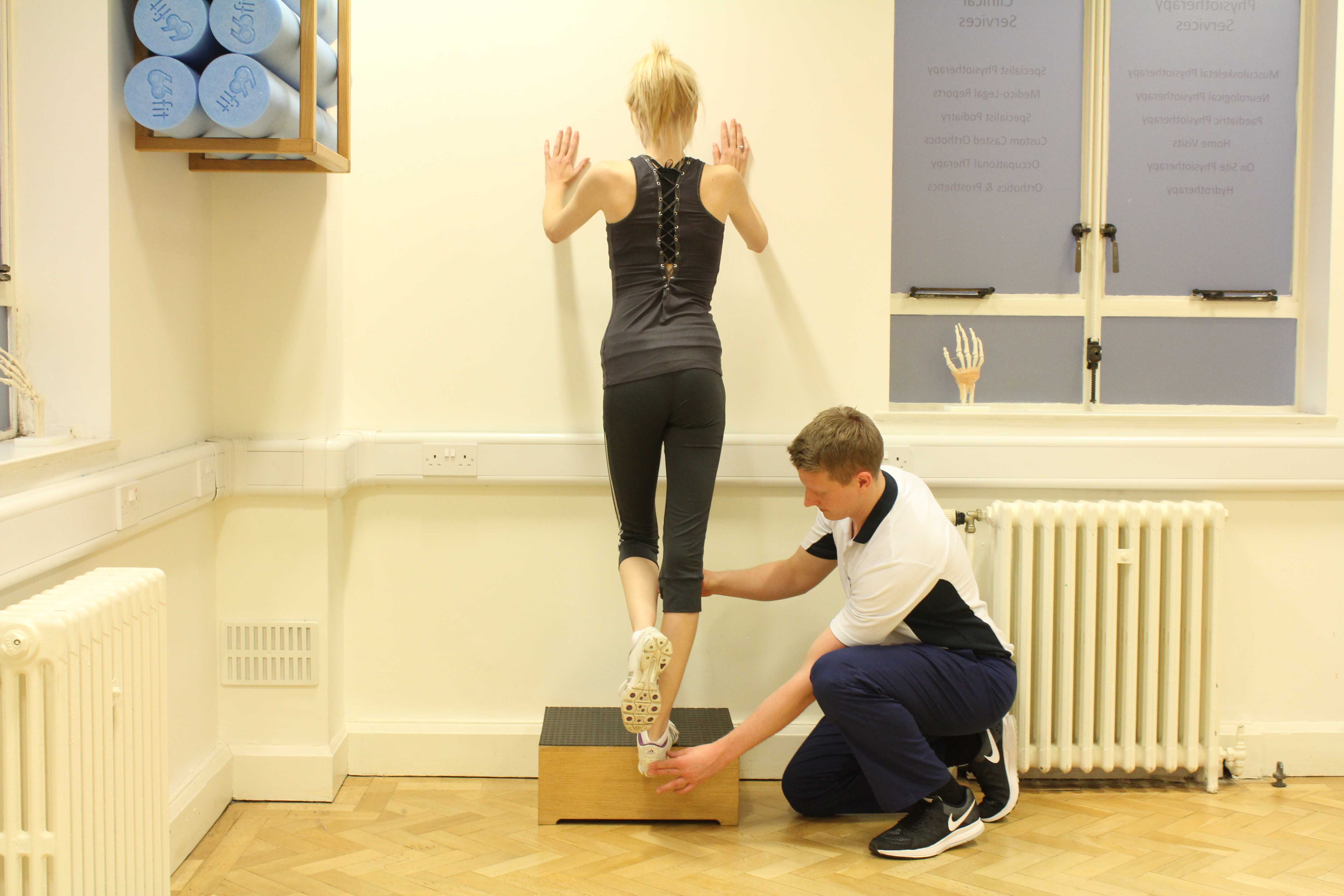What is a bunion?
Bunions (or hallux valgus) are a condition that affects the ball of the foot. It is a malalignment of the bones which make up the big toe joint. The big toe gradually points towards the second toe. This deviation creates an increasingly prominent ‘bump’ on the inside of the foot. Over time this ‘bump’ may get bigger and this is called a ‘bunion’. Physiotherapy can effectively treat bunions.
How does a bunion happen?
Bunions occur due to numerous factors. The main factors are poorly fitting footwear, unstable foot biomechanics and high-heeled shoes.
 Above: Trigger point massage of the planta fascia under the foot.
Above: Trigger point massage of the planta fascia under the foot.How do I know if I have a bunion?
Bunions may or may not cause pain. The amount of pain is often directly related to the amount of deviation of the big toe. Pain is often felt with movement of the joint, therefore, activities that require an increase in the joint motion available may cause pain (i.e. sprinting, dancing). High-heeled shoes may also increase stress on this joint. Other symptoms could include:
What should I do if I have a bunion?
If you have a bunion then you require an assessment by a physiotherapist, podiatrist or an orthopaedic surgeon. Some bunions can be managed conservatively and others have to be referred for surgical correction.
What shouldn’t I do if I have a bunion?
Hallux valgus is a degenerative process and will get worse with time and increased weight-bearing. Poor footwear, unstable foot biomechanics and intense running activity should be assessed and possibly avoided. Eliminating the factors that increase the pressure on the ball of the foot should be encouraged.
Could there be any long-term effects from a bunion?
Early conservative management is important in treatment of this condition, otherwise surgery will be required to alleviate your pain.
 Above: Mobilisations and stretches of the foot and ankle by specialised therapist
Above: Mobilisations and stretches of the foot and ankle by specialised therapistPhysiotherapy treatment for bunions.
The physiotherapists at Physio.co.uk can provide conservative treatment and advice regarding the conservative treatment of bunions. These methods can slow and sometimes halt the progression of your bunion/s. If these conservative methods provide no relief, or your condition gradually worsens, then a surgical referral will be required.
Physiotherapy is crucial after bunion surgery. Treatment may include:
- Electrotherapy
- Exercise Programmes
- Wax therapy
- Orthotics
 Above: Progressive strengthening exercises for the foot and ankle, assisted by specialist MSK physiotherapist
Above: Progressive strengthening exercises for the foot and ankle, assisted by specialist MSK physiotherapistTo arrange a physiotherapy assessment call Physio.co.uk on 0330 088 7800 or book online.

 0330 088 7800
0330 088 7800


































